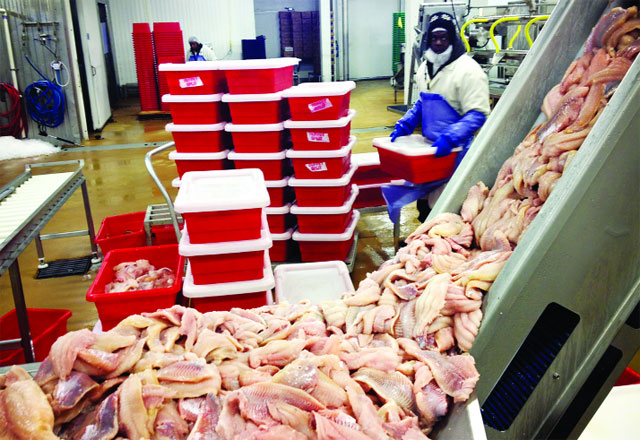The catfish inspection program that has cost American taxpayers USD 30 million (EUR 21.9 million) without inspecting a single fish has survived yet another attempt to cut it from the federal budget.
 Traditionally, all seafood imports into the United States must be inspected by the Food and Drug Administration (FDA), while imports of foodstuffs of all other types are handled by the United States Department of Agriculture (USDA).
Traditionally, all seafood imports into the United States must be inspected by the Food and Drug Administration (FDA), while imports of foodstuffs of all other types are handled by the United States Department of Agriculture (USDA).
That’s still how it works, with one small exception: Any catfish coming into the United States will have to be inspected by the USDA. This little wrinkle came back in 2008, slipped almost as an afterthought into the update that year to the Farm Bill, which sets these regulations.
Recently, the Government Accountability Office (GAO) declared the program a waste of money. Various fiscal conservative government watchdog groups and a growing number of senators and U.S. Representatives from both sides of the political aisle have noted that the program has spent the USD 20 million just to equip itself to do the inspections, let alone actually inspect any fish.
The vast majority want this program cut, except for domestic catfish producers and Sen. Thad Cochran (pictured), R-Miss. He’s a ranking member of the Senate Agricultural Committee which, in cooperation with the House Agricultural Committee, was responsible for preparing the bill for a vote on the floor.
Cochran has declined several requests by SeafoodSource to provide a comment of any kind on the issue. His office has pointed us to statements he has made in the past on the subject, which indicate the senator trusts the USDA more than the FDA to inspect catfish coming in from other countries.
Whether there is any real health risk connected to catfish, as opposed to the rest of the seafood exported to America (more than 90 percent of total seafood consumed here, by the way), is not clear, but anyone who thinks this is the senator’s only motivation must consider some other facts.

Workers clean and flash freeze catfish at a processing plant near Tunica, Miss – Photo: Jackie Northam
Most importantly, the rule sets up a lot more red tape for countries such as Vietnam who want to export pangasius, a type of catfish, to the United States, whether the USDA ever gets around to inspecting it or not. That spells very good news for the USD 1 billion domestic catfish industry, which is a strong constituency in Sen. Cochran’s home state.
Clearly, the Mississippi catfish industry is driving the bus on this one. Apparently, said industry cares little about foreign catfish exporters. It also doesn’t seem to care about the American companies that import and distribute Vietnamese catfish, and the impact this trade barrier – for what else can we call it – has on their future.
This is pork-barrel politics at its worst, and if you’re a part of the seafood industry – whether you’re based in Mississippi or not – and you haven’t told the senator how ridiculous you think this program is, now is the time. This catfish program has survived the ax twice, and if it really does have nine lives, we could be stuck with this waste for quite a while.